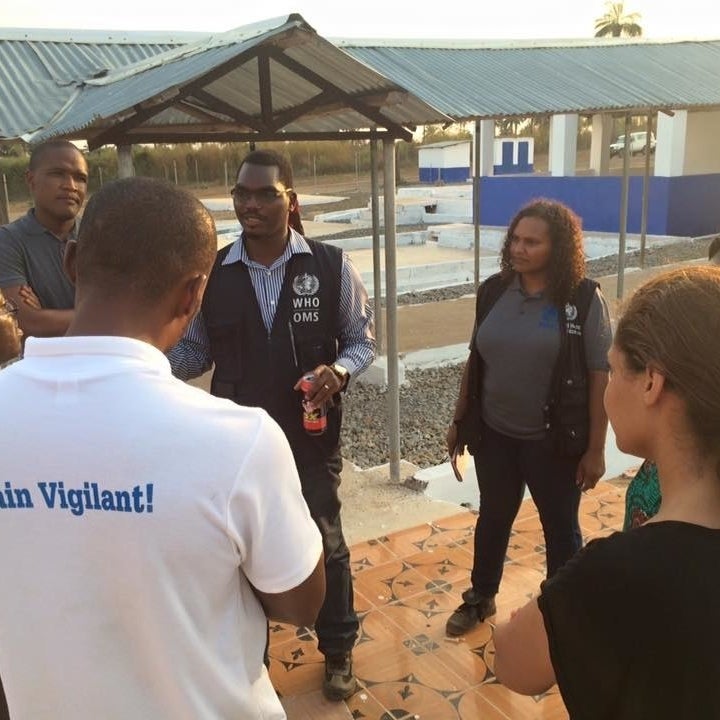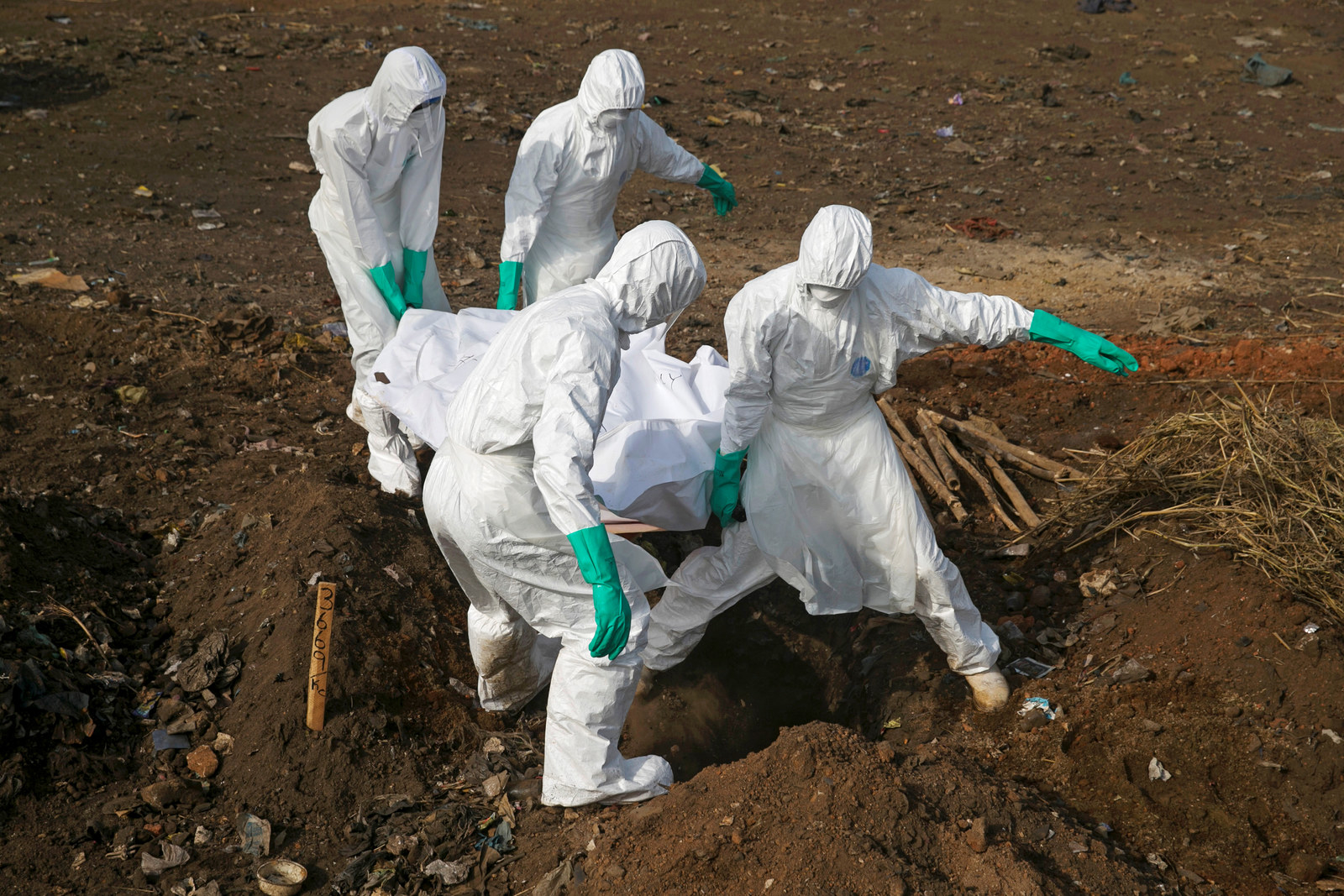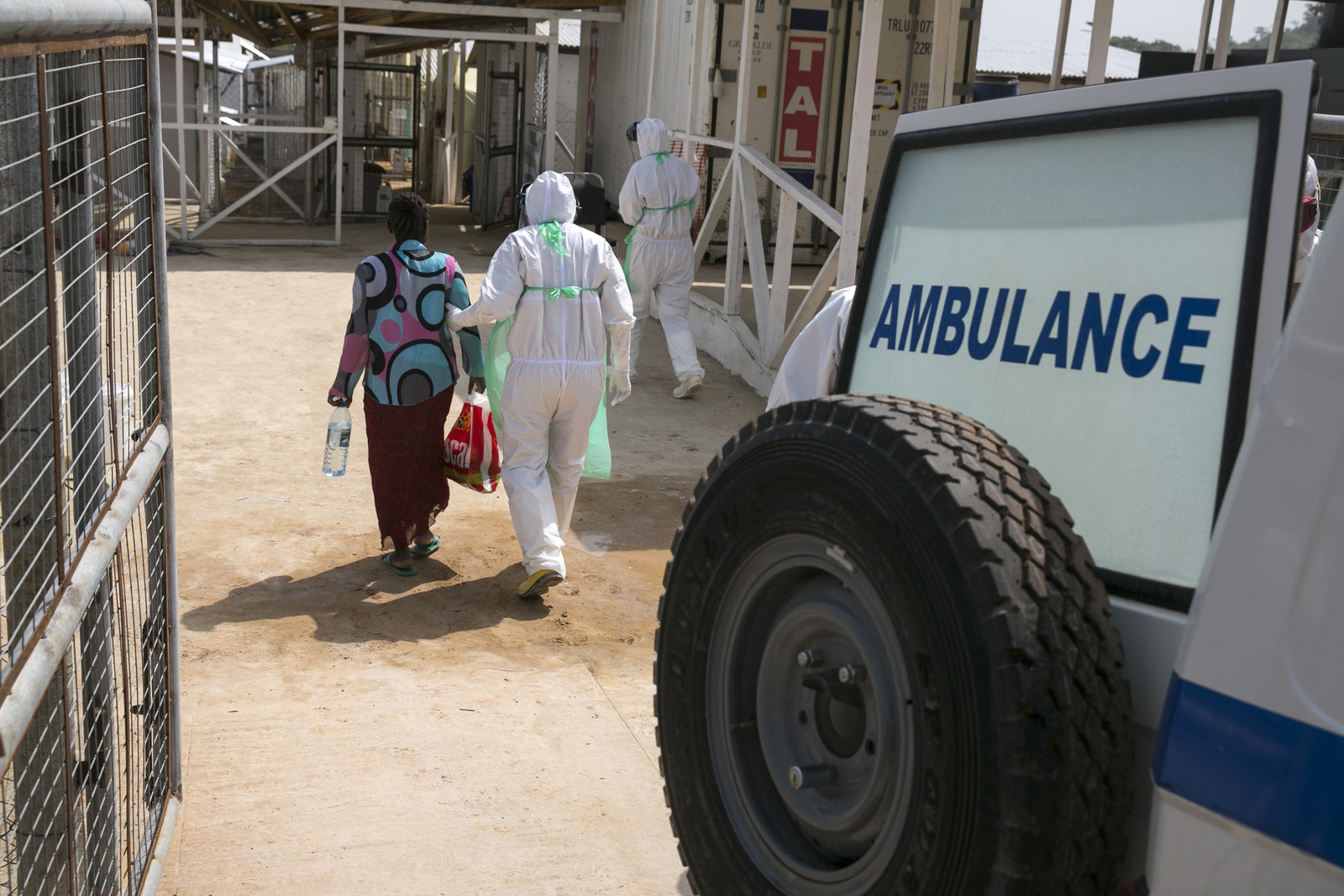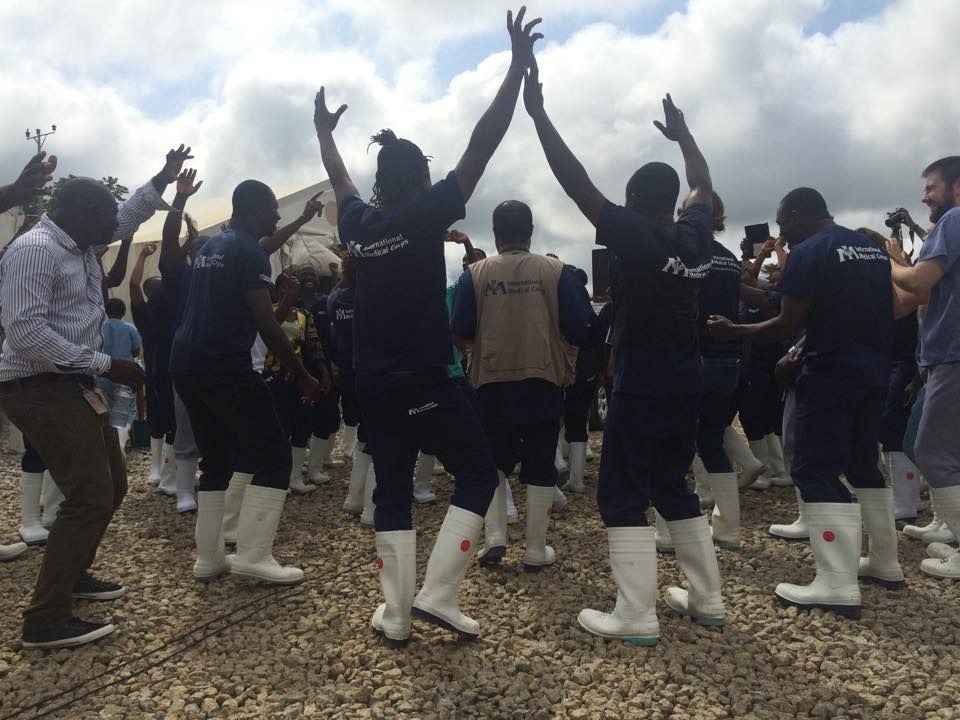Last year Aboriginal epidemiologist Dina Saulo travelled to Western Africa to join efforts by the World Health Organisation to stop the deadly Ebola virus sweeping the region.
A year later she's now giving locals the tools to prevent future outbreaks.


Dina Saulo (centre) in Sierra Leone.
"It was actually a bit of a whirlwind. I arrived in May 2015, towards the end of the outbreak, I came at a time when we were really looking to identify cases early and contain them," Saulo, a Wemba Wemba and Gunditjmara woman, told BuzzFeed News during a short holiday back in Australia.
"Initially, we were quarantining and monitoring those who had come into contact with [those who tested] positive and monitoring them and putting them out [of quarantine] as soon as they were showing any symptoms, to reduce transmission to others within quarantine."

At the end of 2014, when Saulo requested a deployment with the World Health Organisation (WHO), the Ebola crisis was at its peak.
The world had become transfixed and terrified by daily news headlines of high death tolls while photos of workers in white bio-hazard suits spraying dead bodies with disinfectant became a constant fixture on television screens.
Despite the immense community fear at the time, Saulo held few reservations about joining the health effort in Port Loko, Sierra Leone.
"It was big in the media and the main concerns were from family members because there was not really a lot known about it at the time and the high numbers of fatalities," Saulo said.
"I thought, 'well this is what my training is for,' so, I put my name down."

The West African Ebola epidemic was the most devastating in recorded history. It likely started in Guinea in 2014, transmitted from a bat to a human, before quickly spreading to neighbouring Sierra Leone and Liberia. It was the largest outbreak ever seen with more than 27,000 cases and 11,000 deaths.
"Western Africa had never seen Ebola before. There wasn’t much knowledge about the transmission of Ebola and that’s why there was a quick peak in a large number of cases," Saulo said.
"It was devastating in Sierra Leone, their health system at the time was not equipped. Yes, they had health clinics in remote areas but they were under-resourced and there was much fear about the disease."

Epidemiologists, often called disease detectives, were crucial in stopping the spread of Ebola.
"Our job is to find every single link. We need to find out who infected whom, how, and where," Dr Katrina Roper, a WHO epidemiologist working in Sierra Leone said.
While the worst of the epidemic is over, new cases are still being recorded.
Saulo is now working with the community in Sierra Leone to ensure they have the skills and capacity to prevent future outbreaks.
"My work previously in Australia has been in Aboriginal health. I think working with Aboriginal communities you’re actually working in a similar way. It’s about respecting that community, the people, their cultural practices and allowing those communities to have ownership over what they’re doing," Saulo said.
